Speakers 2023
Keynote Speaker Ⅰ
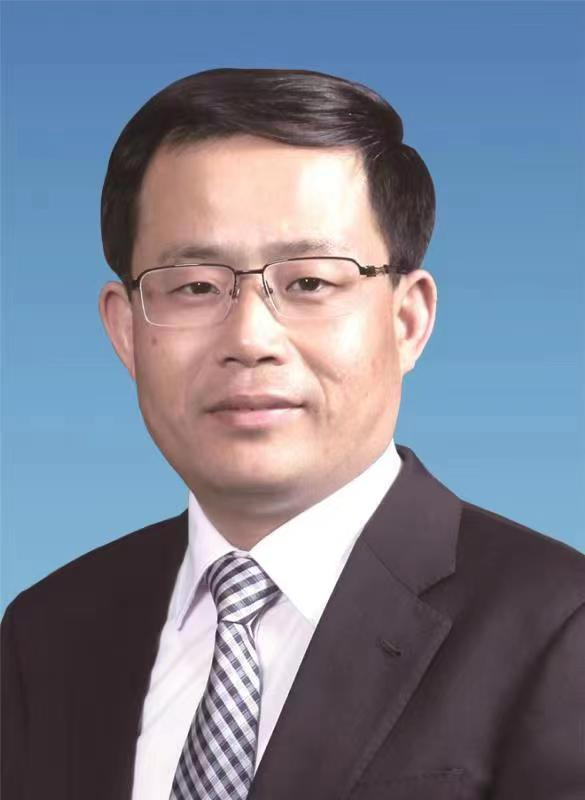
Zhongde Shan
The president of Nanjing University of Aeronautics and Astronautics
Academician of the Chinese Academy of Engineering
Director of the National Key Laboratory of Aerospace Structural Mechanics and Control
Bio: President Shan concurrently serves as the deputy director of the National Industrial Foundation Expert Committee/head of the Basic Technology and Equipment Group, deputy director of the National Intelligent Manufacturing Expert Committee/convener of the Strategy and Policy Consulting Group, deputy leader of the National Intelligent Manufacturing Standardization Expert Advisory Group, and China Machinery Manufacturing Technology Association Chairman, Vice President of the Chinese Society of Mechanical Engineering, Deputy Director of the Expert Committee of the Chinese Society of Aeronautics, Deputy Director of the Expert Advisory Committee of the National Smart Civil Aviation Construction Leading Group/Director of the Science, Education and Supervision Subcommittee, etc. Mainly engaged in the research of digital mechanical equipment and advanced forming manufacturing, aerospace manufacturing technology and equipment, green intelligent manufacturing technology and equipment, etc. As the first author, he won the first prize of National Science and Technology Progress Award, the second prize of National Technological Invention Award, the special prize of China Machinery Industry Science and Technology Award, the first prize of Beijing Science and Technology Award, and the China Patent Gold Award. 13 industry and other standards, more than 100 authorized invention patents, including 38 international invention patents from the United States, Japan, Germany, Russia, etc., published 5 academic works (ranked 1), published more than 100 papers such as SCI, EI, etc., and the country is outstanding Winner of the Youth Science Fund Project, selected as the first batch of leading talents in scientific and technological innovation of the National "Ten Thousand Talents Program", the leading innovation talents of the Ministry of Science and Technology, and the national candidate for the National Million Talent Project, won the Ho Leung Ho Lee Science and Technology Youth Innovation Award, National Innovation Award Certificate of Excellence, special government subsidies from the State Council, etc. Guided and cultivated more than 60 masters, doctoral candidates and postdoctoral fellows.
Keynote Speaker Ⅱ
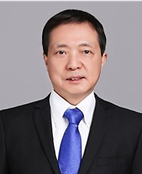
Xiaoguang Li
Foreign academician of the Russian Academy of Engineering
Chief Professor, Qindao University
Director of the Institute of Intelligent Unmanned Systems, Qingdao University
Speech Title: Discussion on Dual Carbon from the Application of Aviation Technology in the Field of High end Equipment and Intelligent Manufacturing ——Innovative technology creates a green future
Abstract: The aviation industry is one of the major sources of greenhouse gas emissions. However, innovative applications of aviation technology can help reduce carbon emissions in the aviation sector and drive the industry towards a more sustainable and environmentally friendly direction. According to the International Air Transport Association (IATA), the aviation industry contributes approximately 2% to the global total of carbon dioxide emissions. With the growth of the global economy and population, the scale of air transport has expanded, resulting in further carbon emissions. According to the International Energy Agency (IEA), global carbon emissions from the aviation industry are predicted to increase by around 20% to 30% by 2023. The Boeing 737 MAX and 787 Dreamliner series aircraft, as well as the Airbus A350 and A380 series aircraft, incorporate advanced aviation technology and lightweight materials. Through improved aircraft design and the introduction of advanced technology, these aircraft aim to enhance fuel efficiency and reduce carbon emissions. Furthermore, both Boeing and Airbus are actively promoting research and application of sustainable aviation fuels to reduce dependence on conventional petroleum-based fuels. They have collaborated on multiple biofuel projects to facilitate the commercialization of sustainable aviation fuels. Lastly, through the implementation of intelligent manufacturing and automation technologies, they aim to enhance production efficiency, reduce energy consumption, and achieve sustainable manufacturing processes. As global concern for climate change and sustainable development continues to grow, future aviation technology will continue to drive innovation and technological advancements. Through international cooperation, technological innovation, and the application of sustainable fuels, efforts will be made to reduce carbon emissions. By joining forces across the industry, aviation aims to achieve more sustainable and environmentally friendly air transport, making a significant contribution to global climate change mitigation.
Bio: A Ph.D. in Mechanical and Aerospace Engineering from Purdue University and has led and participated in numerous internationally leading research projects in both China and the United States. These projects involved funding amounts totaling billions of dollars, with over 300 research reports completed. Has received multiple awards for scientific and technological achievements and contributions in both China and the United States, demonstrating exceptional interdisciplinary technical expertise and the ability to solve practical engineering problems. Held position as a senior engineer, senior-level expert, and project and team leader at renowned international aerospace manufacturing companies such as General Electric Aircraft Engines and Boeing. Within Boeing, served as the Chief Expert of the 787-9 aircraft systems division. In 2013, selected as a major talent in a national-level talent program and worked at Commercial Aircraft Corporation of China (COMAC) on the development and management of the C919, a major national commercial aircraft program. Held position as a specially appointed senior expert, Level 1 IPT (Integrated Product Team) Assistant Director for C919, and a core member of the organization structure transformation leadership group. Served as an professor and deputy director of the overall teaching and research office in the Department of Aerospace Engineering (now the School of stronautics) at Beijing Institute of Technology. In 2015, appointed as a National Distinguished Professor, Ph.D. supervisor and the Director of the Systems Engineering Center at Nanjing University of Aeronautics and Astronautics. In 2018, the Vice President and Chief Scientist of Unmanned Aerial Systems at JD.com, a Fortune Global 500 company. In 2019, Beijing Strategic Scientist (Class A top talent, equivalent to academicians of the Chinese Academy of Sciences and the Chinese Academy of Engineering). In October 2020, Chief Professor, Doctoral Supervisor in Systems Science, and Director of the Institute of Intelligent Unmanned Systems at Qingdao University. In April 2022, foreign academician of the Russian Academy of Engineering.
Keynote Speaker Ⅲ
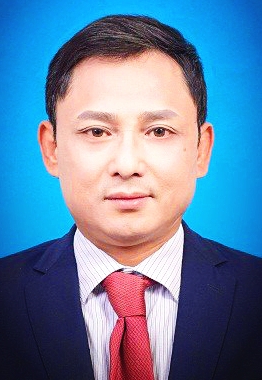
Renfu Li
Huazhong University of Science and Technology, China
Speech Title: Currents、Challenges and Prospect of Low-Cost UAV Formation Flying
Abstract: Low-cost unmanned aerial vehicles (UAVs) have attracted great interests worldwide due to their superior characters and performances either in civil or military applications. Inspired by the formation flight of goose migration in nature, people have creatively developed various methodology and strategy for the fight control of aircraft/spacecraft or unmanned aerial vehicles. In recent decades, the swarm behavior of ants or other animals and emerging AI science and technology has driven lots of scholars to investigate new methods and algorithms to make use of the benefits of group advantage to execute high-risk and high-value tasks at low expenses, such as as large-area searching、operation in conflicting environments、high precision long distance detection etc. This talk will cover the background,challenges and prospects of this vigorous research field.
Bio: Professor Li,Chutian Talent Professor; ASME Fellow、AIAA Associate Fellow; Vice-Chair of the School of Aerospace Engineering, Dean of the Institute of UAV System, President of the Academic Committee of the School of Aerospace Engineering at HUST Professor Li obtained his B.S. degree from Beihang University , Ph.D. degree with honor from the school of aerospace engineering at the Georgia Institute of Technology, U.S.A. After having worked in US over 14 years, He was invited to HUST to establish the School of Aerospace Engineering. Professor Li has over thirty years experience in aerospace engineering. He had also been involved grand scientific project. Professor Li’s major research filed covers: Flight Vehicle System Design, Intelligent Flight formation and Control, UVA system, etc. Professor has authorized over 120 sci papers、50 patents. He is the associate editor of AIAA Journal, editor committee of “Chinese Journal of Aeronautics”, etc.
Keynote Speaker Ⅳ
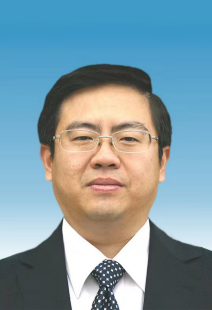
Haitao Nie
Chairman of Sichuan Tengden Technology Co., Ltd.
Speech Title: The Development of Civil Unmanned Aerial Vehicle Market
Abstract: In terms of UAV market, the civil UAV application promises to be one of the most dynamic growth sectors for the next decade, especially for the use of emergency rescue, cargo delivery, meteorological services and urban transportation. According to the survey and forecast by the Teal Group, the compound annual growth rate (CAGR) of civil UAV market will reach 14% and total $121 billion in the next 10 years. But the speed with which we get there, and the timing of increases, is closely tied to key technology development. Artificial intelligence, machine learning and Algorithms under development will broaden the applicability of Unmanned Aerial System (UAS), and the efficacy of the UAS and makes them more cost efficient.
Bio: Haitao Nie is currently a Professor and director of Intelligent UAV Technology Research Center in the School of Aeronautics and Astronautics at the University of Electronic Science and Technology of China (UESTC). He was awarded as The fifth National Top Ten Outstanding Scientific and Technological Workers, and has gained 3 times of National Scientific and Technological Progress Award, 6 times of Provincial Scientific and Technological Progress Award.
Keynote Speaker Ⅴ
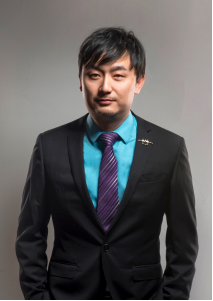
Burt Guo
University of Electronic Science and Technology of China
(UESTC)
Speech Title: The Operations and Products of Advanced Air Mobility
Abstract: Advanced Air Mobility (AAM) , is an air transportation system that will operate and transport passengers or cargo at lower altitudes in urban, suburban, and rural areas. This section focuses on passenger-grade Electric Vertical Takeoff and Landing (eVTOL) vehicles as they provide an alternative solution for people to get around sustainably. A new generation of aviation pioneers are building air mobility solutions that will reduce urban congestion and reduce our reliance on fossil-based fuels. Dr. Guo is dedicated to initiating the large-scale commercial operation of low-altitude three-dimensional transportation in logistics and passenger aerial travel markets. It is expected that its low-altitude logistics initiatives will lead to faster distribution than traditional ground logistics. Low-altitude logistics can reach much higher efficiency through point-to-point logistics that cover sub-regional areas (within 500 km).
Bio: Dr. Guo is currently the Professor of School of Aeronautics and Astronautics, University of Electronic Science and Technology of China (UESTC); President & Chief Scientist, Aerofugia Tech. Co., Ltd; Listed in “40 under 40” in 2016/2017 Fortune China, Recipient of the May Fourth Medal in Sichuan Province, the top honor for young Chinese; Chief supervisor of Commercial Association Chengdu; Listed in National Special Support Plan for High-level Talents; Standing committee member, Sichuan Federation of Industry and Commerce; Vice President, Sichuan Technology & Equipment Manufacturing Chamber of Commerce.
Keynote Speaker Ⅵ
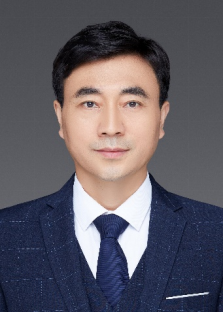
Zexu Zhang
Director of the Institute of Aircraft Dynamics and Control of Harbin Institute of Technology
Speech Title: Swarm UAVs Intelligence Collaborative Perception for Ground Situation
Abstract: Aiming at the demand for rapid ground situation perception under game conditions, this paper proposes the use of Swarm UAVs seamless full-time coverage of ground intelligence collaborative perception technology, explores the weak social group intelligence and non-conscious group collaborative science problem, establishes a cluster network information system characterized by "wide area ubiquity plus task intelligence", and realizes the perception of environmental situation with different granularity levels. The perception is extended from the physical domain and the information domain to the knowledge domain, and realizes the task assignment, path planning and cooperative control, target and scene knowledge map representation, and fast reconstruction based on image sequences.
Bio:Professor, Doctoral Supervisor, Director of the Institute of Aircraft Dynamics and Control of Harbin Institute of Technology (HIT), executive Director of the Chinese Society of Space Research (CSSR), Chairman of the Professional Committee on Space Intelligence of the CSSR, Member of the Professional Committee on Command-and-Control Network of the Chinese Institute of Command and Control, and Member of the Professional Committee on Autonomous Operation Technology of Space Unmanned Systems of the Chinese Association of Automation. He has been engaged in research on intelligent collaborative perception and autonomous decision-making of unmanned cluster systems, as well as autonomous navigation and control of flight vehicle. Currently, he is the Technical Chief of a Key Basic Research Project of the Basic Strengthening Program.
Keynote Speaker Ⅶ
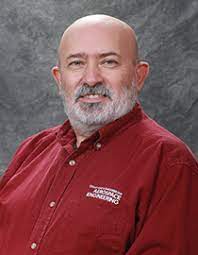
Professor Daniele Mortari
Texas A&M University
IEEE Fellow
Speech Title: Optimization using the Theory of Functional Connections
Abstract: This lecture summarizes what the Theory of Functional Connections (TFC) is and presents various applications of optimization problems in aerospace engineering. The TFC performs analytical functional interpolation. This allows to derive analytical expressions with embedded constraints, expressions describing all possible functions satisfying a set of constraints. TFC has been extended to Multivariate domains and to a wide class of constraints, including points, functions, and derivatives constraints, relative constraints, linear combination of constraints, component constraints, and integral constraints. An immediate application of TFC is on constrained optimization problems as the whole search space is reduced to just the space of solutions fully satisfying the constraints. This way a large set of constrained optimization problems are turned into unconstrained problems, allowing more simple, fast, and accurate methods to solve them. For instance, TFC allows to obtain fast and machine-error accurate solutions of linear and nonlinear ordinary differential equations.
Bio: Daniele Mortari is a Professor of Aerospace Engineering at Texas A&M University, working in the field of attitude and position estimation, satellite constellation design, sensor data processing, and various topic in linear algebra and numerical algorithms. He has taught at the School of Aerospace Engineering of the University of Rome, and at Electronic Engineering of the University of Perugia. He received his “dottore” degree in Nuclear Engineering from the University of Rome. He has been widely recognized for his work, including receiving best paper Award from AAS/AIAA and from journal Mathematics, three NASA’s Group Achievement Awards, the 2007 IEEE Judith A. Resnik Award, and the 2016 AAS Dirk Brouwer Award. He has published 125 journal articles, 245 conference papers, and delivered more than 100 invited seminars. He is a Member of the International Academy of Astronautics, IEEE, AAIA, and AAS Fellow, AIAA Associate Fellow, Honorary Member of IEEE-AESS Space System Technical Panel, and former IEEE Distinguish Speaker. He is Editor-in-Chief of section Functional Interpolation of the Journal Mathematics.
Keynote Speaker Ⅷ
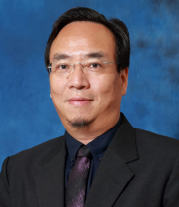
Professor Ben M. Chen
Department of Mechanical and Automation Engineering
the Chinese University of Hong Kong
IEEE Fellow
Speech Title: Infrastructure Inspection and Information Management with Multi-agent Unmanned Aerial Systems and AI Technologies
Abstract: In this talk, we aim to present a fully autonomous and fully functional infrastructure inspection and information management system with advanced AI and multiple unmanned aerial systems (UAS) technologies. The system includes sophisticated unmanned aerial hardware platforms and software systems for automatic flight control and task and motion planning, artificial intelligent algorithms and software platform for image and infrared data processing, i.e., crack, spalling, delamination and other defect detections, and building information modeling (BIM) and management system integrated with detailed geographical information systems (GIS) and digital twin technologies. Compared with the manual inspection, the system that we have developed has the advantages of being more economical, safer, flexible and efficient. It can also be adopted for other industrial applications, including smart traffic management and smart cities.
Bio: Ben M. Chen is currently a Professor in the Department of Mechanical and Automation Engineering at the Chinese University of Hong Kong (CUHK). Before joining CUHK in 2018, he was a Provost's Chair Professor in the Department of Electrical and Computer Engineering at the National University of Singapore, where had worked for 25 years. He was an Assistant Professor in the Department of Electrical Engineering at the State University of New York at Stony Brook, USA, in 1992–1993, and was a Software Engineer at South China Computer Corporation, China, 1983–1986. His current research interests are in unmanned systems and their applications. Professor Chen is an IEEE Fellow, CAA Fellow and Fellow of Academy of Engineering, Singapore. He has authored/co-authored hundreds of journal and conference articles, and ten research monographs in control theory and applications, unmanned systems and financial market modeling. He had served on the editorial boards of a dozen international journals including Automatica and IEEE Transactions on Automatic Control. He currently serves as an Editor-in-Chief of Unmanned Systems, an Editor of International Journal of Robust and Nonlinear Control, and an Associate Editor of Science China Information Sciences.
Keynote Speaker Ⅸ
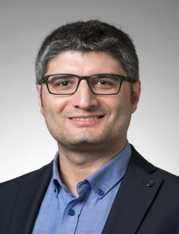
Erdal Kayacan
Aarhus University
Speech Title: Deep Learning for robot navigation and planning using neuromorphic vision
Abstract: Drones have the potential to revolutionize many activities in our lives due to their agility and maneuverability. On the other hand, their ability to navigate at ultra-high speeds in complex and unknown environments is currently limited by their ability to perceive and understand their surroundings sufficiently fast and precisely. Therefore, it is crucial to study efficient methods for 3D perception as they enable aerial robots to travel at high speeds to maximize their capabilities in vital missions, from search and rescue operations to critical infrastructure inspection. Though commonly used in most applications, traditional pixel-based cameras are hardly fit for agile navigation, as they suffer from visual degradation such as motion blur or high dynamic range effects. This talk will discuss the feasibility of safe navigation with a single event camera for autonomous drone racing. Eventually, the ultimate goal is to propose a paradigm shift from pixel-based to event-based neuromorphic sensing for more efficient and robust robot perception.
Bio: Erdal Kayacan received a Ph.D. degree in electrical and electronic engineering at Bogazici University, Istanbul, Turkey in 2011. After finishing his post-doctoral research in KU Leuven at the division of mechatronics, biostatistics and sensors (MeBioS) in 2014, he worked in Nanyang Technological University, Singapore at the School of Mechanical and Aerospace Engineering as an assistant professor for four years. Currently, he is pursuing his research at Aarhus University at the Department of Electrical and Computer Engineering as an associate professor. He has completed a number of research projects which have focused on the design and development of ground and aerial robotic systems, vision-based control techniques, and artificial intelligence. He is a Senior Member of Institute of Electrical and Electronics Engineers (IEEE). He is the technical editor of the IEEE/ASME Transactions Mechatronics and the associate editor in IEEE Robotics and Automation Letters.